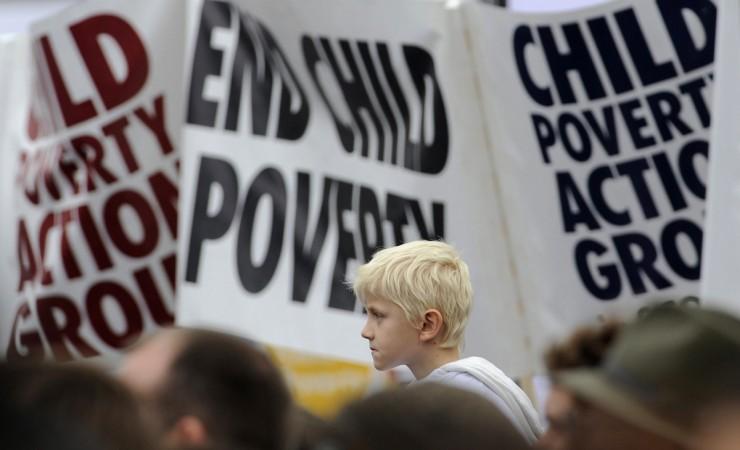
The number of children living in poverty in Britain rose last year as the poorest families saw their incomes hit by welfare cuts, a think tank said, underscoring the challenge for the government as it tries to balance the public finances.
A fall in disposable income for the poorest 30 percent of households meant child poverty probably rose by 3 percent in 2017, according to the Resolution Foundation which focuses on issues faced by low-income families.
Inflation-adjusted incomes for middle-income and higher earning households grew, albeit only slowly, reflecting in part the jump in inflation triggered by the Brexit vote in 2016.
The Resolution Foundation — which is chaired by a former Conservative Party minister — said its child poverty figures measured the number of children living in families with income that was less than 60 percent of a typical household.
"It's vital that government and other policymakers understand the positive impact cash transfers have on low-income families," Adam Corlett, a Resolution Foundation analyst, said. "The risk is that, unless the lessons of the past are learned, the future could spell squeezed incomes and further increases in child poverty."
In a report, the Resolution Foundation said child poverty had risen twice as fast since 2011 as official figures show. However, the report also said that once all benefit income is accounted for, 25 percent of children are living in relative poverty, rather than official survey estimates of 30 percent.
The British government is battling the effects on Brexit as it is still struggling to roll out its Universal Credit scheme, which looks to replace multiple welfare benefits with a single monthly income rate. The scheme has come under immense criticism for its rollout, which left several low-income individuals without money for months.

















